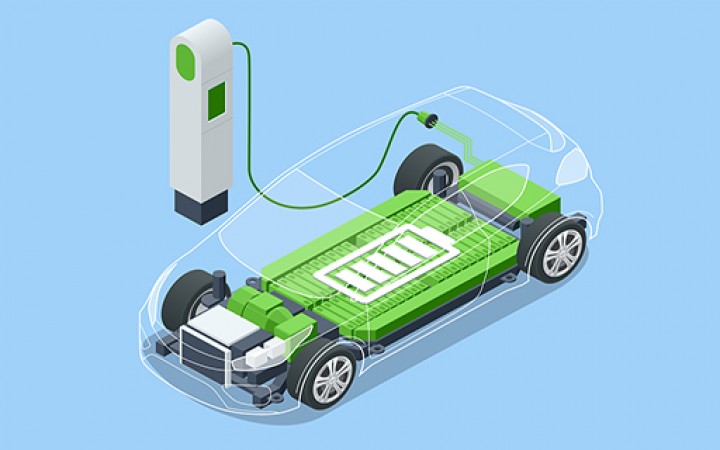
In the realm of electric vehicles (EVs), India is setting its sights on luring global auto giants, including the likes of Tesla, to establish a significant presence in the high-end electric vehicle market. To achieve this ambitious goal, the government is considering the implementation of a Phased Manufacturing Plan (PMP) type of scheme. This approach not only caters to the requirements of the entire industry but also lays the foundation for a thriving EV ecosystem within the country.
1. Setting the Stage: India's EV Ambitions
India's push toward electric mobility is gaining momentum as it strives to reduce its carbon footprint and enhance energy security. With an eye on attracting global EV giants, the government is exploring innovative strategies to catalyze the transition to electric vehicles.
2. The Phased Manufacturing Plan: Accelerating the Transition
The Phased Manufacturing Plan (PMP) is a proposed strategy that could revolutionize the EV landscape in India. This approach involves implementing a graded duty structure to encourage domestic manufacturing of EV components. By incentivizing local production, the PMP aims to reduce the dependency on imports and foster the growth of a self-sustaining EV industry.
3. A Win-Win Situation: Boosting Capacity and Export Potential
One of the key advantages of the PMP is its dual role in both meeting domestic demand and creating a platform for exports. This approach not only addresses the needs of the Indian market but also positions the country as a global manufacturing hub for EVs and their components.
4. Catering to Diverse Industry Players: Company Agnostic Approach
The beauty of the PMP lies in its inclusivity. This scheme is designed to accommodate a wide array of industry players, irrespective of their origin. Its company-agnostic nature ensures that all manufacturers, from established domestic brands to potential entrants like Tesla, can benefit from the incentives provided by the plan.
5. Tesla's Potential Entry: A Game-Changer for India's EV Landscape
Tesla's interest in the Indian market has sparked excitement and anticipation. After discussions between Tesla CEO Elon Musk and Indian officials, it's evident that Tesla is willing to invest in the country's EV ecosystem. This includes not only vehicle production but also sourcing components from Indian vendors.
6. A Shift Beyond China: Tesla's Indian Prospects
Tesla's intention to diversify beyond its stronghold in China aligns well with India's aspirations to become a major player in the global EV arena. Tesla's positive outlook on India and its readiness to collaborate with local stakeholders bode well for the growth of the Indian EV industry.
7. Evolving Industry Dynamics: Other Players Joining the Fray
While Tesla's engagement with India captures headlines, other major players are also expressing keen interest. Companies like BMW and Foxconn are exploring opportunities to establish their manufacturing presence in India, demonstrating the country's growing significance in the international EV market.
8. Incentives for Growth: Supporting Indigenous Manufacturing
The PMP not only encourages foreign investment but also supports indigenous manufacturing capabilities. By gradually ramping up indigenization, the plan paves the way for long-term sustainable growth of the EV sector in India.
9. BMW's Approach: Leveraging Incentives for Investment
BMW's engagement with Indian officials highlights the attractiveness of the PMP. The company's proposition of importing duty-free EVs for a specified period before establishing a local manufacturing facility underscores the potential benefits the plan offers to global players.
10. Foxconn's Game Plan: A Thriving EV Ecosystem
Foxconn's interest in setting up a base in India or Thailand for manufacturing affordable EVs reflects the evolving dynamics of the industry. Their focus on producing cost-effective vehicles aligns with India's vision of promoting electric mobility at various price points.
11. Progression Toward Sustainability: Gradual Evolution
The concept of a phased manufacturing programme embodies the principle of gradual progression. It recognizes that transitioning an entire industry requires strategic planning, collaboration, and the alignment of stakeholders' interests.
12. Incentives Driving Investments: Fueling the Momentum
Incentives play a pivotal role in encouraging both domestic and foreign investments in the EV sector. These incentives not only support the growth of the industry but also position India as a global leader in electric mobility.
13. Building a Sustainable Future: Environmental Impact
The transition to electric vehicles holds the promise of reducing carbon emissions and minimizing the environmental impact of transportation. India's efforts to attract global players align with its commitment to building a sustainable future.
14. Charting a Promising Path
India's approach of embracing a phased manufacturing plan underscores its determination to establish a robust electric vehicle ecosystem. By attracting global giants like Tesla and fostering indigenous manufacturing, the country is poised to reshape the global electric mobility landscape.
Boosting Productivity through AI-Enhanced Remote Collaboration